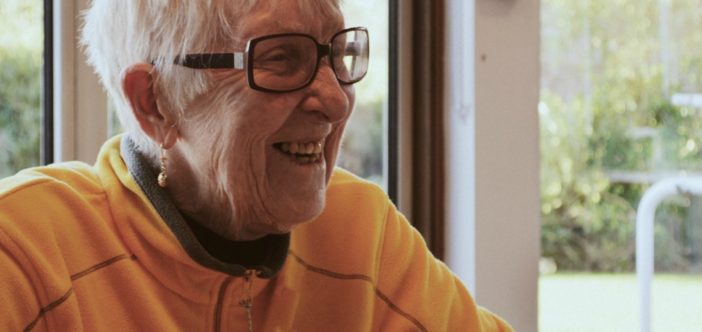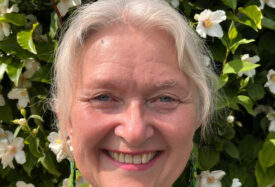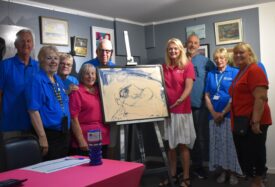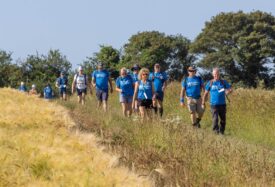Hospice patients and carers enjoy new Writing for Wellbeing workshops

Patients and carers at Pilgrims Hospice Canterbury are benefitting from a new Writing for Wellbeing project aimed at promoting happiness and wellbeing. These expressive writing workshops have proved so popular that they will soon be offered by the Occupational Therapy team at all three hospices, helping even more people with incurable illness to live well in mind and body.
Led by Justine Robinson, Lead Occupational Therapist at Pilgrims Hospices, the Writing for Wellbeing project has been running from the Canterbury hospice Therapy Centre since April 2018. Patients and carers are invited to attend weekly writing workshops, either together or on their own. They are guided through a writing exercise based on a different theme each week and encouraged to learn and develop expressive, creative writing skills in a safe, confidential space.
So far, themes have included:
- Memories
- Reading poems to help springboard personal writing
- Choosing an unfamiliar item, describing it and expressing personal feelings about it
- Images of doors, i.e. ‘Where would this door lead you to?’
A developing body of research initiated by Dr James Pennebaker shows that expressive writing helps to calm the mind and emotions and increase feelings of happiness and wellbeing. Justine is also a member of Lapidus, an international organisation that promotes writing for wellbeing and the benefits it brings.
It’s not about grammar, perfect sentences or gripping stories. We’re interested in the process of writing and how it can help uncover motivations, fears, needs, worries, hopes and dreams.Justine Robinson, Lead Occupational Therapist at Pilgrims
Justine explains: “Things that come up a lot are childhood memories, reviewing past events, resilience – how bad things in life can make us stronger and help us cope with future events – nature and our relationship to the natural world.
“It’s not about grammar, perfect sentences or gripping stories. We’re interested in the process of writing and how it can help uncover motivations, fears, needs, worries, hopes and dreams. Participants don’t need any previous experience and need only share as much as they feel comfortable with.”

Justine has also made links with Dorothy Lehane, Lecturer in Creative Writing at the University of Kent. Third year students Creative Writing students have led workshops at the hospice, which received a very positive response from the patients and carers who attended.
Justine added: “The workshops are a great alternative approach to communication; they encourage social interaction and story sharing, as well as offering time for personal reflection. We’re looking forward to developing the Writing for Wellbeing project at all three hospices.”


